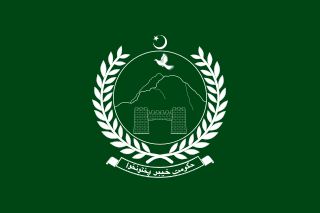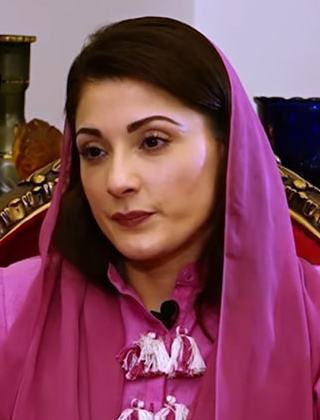
Bangladesh elects on national level a legislature with one house or chamber. The unicameral Jatiyo Sangshad, meaning national parliament, has 350 members of which 300 members are directly elected through a national election for a five-year term in single-seat constituencies while 50 memberships are reserved for the women who are selected by the ruling party or coalition. The Prime Minister is the head of the government. The president who is the head of the state is elected by the National Parliament. The president of Bangladesh is a ceremonial post and does not exercise any control over the running of the state.

General elections were held in Pakistan on 7 December 1970 to elect members of the National Assembly. They were the first direct general elections since the independence of Pakistan and ultimately the only ones held prior to the independence of Bangladesh. Voting took place in 300 general constituencies, of which 162 were in East Pakistan and 138 in West Pakistan. A further thirteen seats were reserved for women, who were to be elected by members of the National Assembly.

The Provincial Assembly ofKhyber Pakhtunkhwa is a unicameral legislature of elected representatives of the Pakistani province of Khyber Pakhtunkhwa, which is located in Peshawar, the provincial capital. It was established under Article 106 of the Constitution of Pakistan, having a total of 145 seats, with 115 general seats, 26 seats reserved for women and 4 reserved for non-Muslims.

The Provincial Assembly of Balochistan is a unicameral legislature of elected representatives of the Pakistani province of Balochistan, and is located in Quetta, the provincial capital. It was established under Article 106 of the Constitution of Pakistan having a total of 65 seats, with 51 general seats, 11 seats reserved for women and 3 reserved for non-Muslims. The Assembly has 51 directly elected Members of the Provincial Assembly, representing constituencies from each district, as well as 11 seats reserved for women and 3 for non-Muslims.

Senate elections were held in Pakistan on 5 March 2015 to elect the replacements for 52 retiring senators. Those retiring include chairman Nayyar Hussain Bukhari and deputy chairman Sabir Ali Baloch of the upper house. Pakistan Peoples Party (PPP), the majority party in Senate, would lose 21 members, followed by Pakistan Muslim League Nawaz would lose 9 and Awami National Party would lose 6 members.

Provincial elections were held in the Pakistani province of Punjab to elect the 16th Provincial Assembly of the Punjab on 11 May 2013, alongside nationwide general elections and three other provincial elections in Sindh, Balochistan and Khyber Pakhtunkhwa. The remaining two territories of Pakistan, AJK and Gilgit-Baltistan, were ineligible to vote due to their disputed status.
Shama Ishaq Baloch is a Pakistani politician who was a Member of the Provincial Assembly of Balochistan, from May 2013 to May 2018.

The Balochistan Awami Party is a political party based in the Balochistan province of Pakistan founded in 2018 by political dissidents of the Pakistan Muslim League (N) and the Pakistan Muslim League (Q) in Balochistan.

Provincial elections were held in the Pakistani province of Punjab on to elect the members of the 17th Provincial Assembly of the Punjab on 25 July 2018, alongside nationwide general elections and three other provincial elections in Sindh, Balochistan and Khyber Pakhtunkhwa. The remaining two territories of Pakistan, AJK and Gilgit-Baltistan, were ineligible to vote due to their disputed status.

Provincial elections were held in the Pakistani province of Sindh to elect the members of the 13th Provincial Assembly of Sindh on 25 July 2018, alongside nationwide general elections and three other provincial elections in Khyber Pakhtunkhwa, Balochistan and Punjab. The remaining two territories of Pakistan, AJK and Gilgit-Baltistan, were ineligible to vote due to their disputed status.

Provincial elections were held in the Pakistani province of Balochistan on 25 July 2018. Newly formed Balochistan Awami Party (BAP) emerged as the largest party by winning 24 seats followed by Muttahida Majlis-e-Amal who won 10 seats. Pakistan Tehreek-e-Insaf won 7 seats for the very first time.

General elections, originally scheduled to be held in 2023, were held in Pakistan on 8 February 2024 to elect the members of the 16th National Assembly. The Election Commission of Pakistan announced the detailed schedule on 15 December 2023.

Provincial elections were held in the Pakistani province of Khyber Pakhtunkhwa's constituencies belonging to areas previously known as the Federally Administered Tribal Areas (FATA) on 20 July 2019. After the election, the new members joined the already elected members from the rest of the province to complete the formation of 11th Provincial Assembly of Khyber Pakhtunkhwa.

Provincial elections were held in the Pakistani province of Punjab to elect the 15th Provincial Assembly of the Punjab on 18 February 2008, alongside nationwide general elections and three other provincial elections in Sindh, Balochistan and North-West Frontier Province. The remaining two territories of Pakistan, AJK and Gilgit-Baltistan, were ineligible to vote due to their disputed status.

Since Pakistan's independence on 14 August 1947, women have been active participants in parliamentary politics. Their representation remained low in the first and second Constituent Assemblies, however the amendments to the Constitution of Pakistan paved way for their increased participation in the parliament. Besides, the progressive laws helped improve their participation in legislative and executive positions over the years. Since 2002, women politicians have notable representation in the federal as well as provincial assemblies.

Provincial elections were held in the North-West Frontier Province to elect the members of the 9th Provincial Assembly of North-West Frontier Province on 18 February 2008, alongside nationwide general elections and three other provincial elections in Sindh, Balochistan, and Punjab. The remaining two territories of Pakistan, AJK and Gilgit-Baltistan, were ineligible to vote due to their disputed status. These were the last elections held under the provincial name "North-West Frontier Province", later changed to Khyber Pakhtunkhwa following the Eighteenth Amendment to the Constitution of Pakistan.

General Elections were held in North-West Frontier Province on Monday 7 December 1970 to elect 19 Members of 5th National Assembly of Pakistan. Out of 19 National Assembly seats 18 were General seats and 1 was reserved for woman.

Provincial elections were held in Balochistan on 8 February 2024 to elect a new provincial legislature. On 5 August 2023, after the approval of the results of the 2023 digital census by the Council of Common Interests headed by Prime Minister Shehbaz Sharif, elections have been delayed for several months, as new delimitations will be published on 14 December 2023. On 2 November 2023, the Election Commission of Pakistan announced, in agreement with the President of Pakistan, Arif Alvi, that the elections will be held on 8 February 2024. This election will be held concurrently with nationwide general elections and other provincial elections.


















